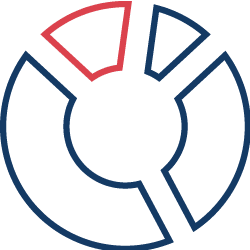Quality operations is an essential function of the life sciences industry. Drug manufacturers must thoroughly test materials, processes, equipment, techniques, environments and personnel in order to ensure their final products are consistent, safe, effective and predictable. Even when a drug does make it to market, there is no guarantee it will succeed.
From January 2013 to October 2018, approximately 8,000 medications were recalledby pharmaceutical companies globally, following concerns over quality. Whileevery year, €4.5bn is wasted due to expired, lost or uncaptured medical device charge costs. To avoid operational inefficiencies, information needs to be kept up-to-date and products captured at point of use to enable intelligent healthcare and purchasing decisions.
Companies are all too aware of the risk, according to research,67% of executivesconsider cost of quality essential to competitive success. Quality issues can be the result of a slip up somewhere along a complex supply chain or during the design, testing and manufacturing process. A single error can have severe consequences not just for patients, but shareholders too - one major quality event can mean a ten percent drop in a manufacturer’s share price, accordingto MGI.
One of the most recognised groups representing quality professionals in Germany is theGerman Quality Management Association(GQMA). The organisation is the largest German association for quality management in the chemical and pharmaceutical industry, and is led by itsPresident, Steffen König. Their aims include the promotion of scientific information and opinion exchange as well as the promotion of purpose-specific education and training.
One of the key areas GQMA must educate its members on is Industry 4.0. Ushering in a new era of interdisciplinary research and practice that focuses heavily on interconnectivity, automation, machine learning, and real-time data, Industry 4.0 has the potential to revolutionise the quality process.According to a report by Pharma Manufacturing, the first real-life cases of implementing such innovations have delivered a 50% reduction in overall quality control costs. Digitisation and automation will also ensure better quality and compliance by reducing manual errors and variability, as well as allowing faster and effective resolution of problems. Test cases have demonstrated incidents with over 90% faster closure times.
InDeloitte’s Global Life Sciences Sector Outlook,research points to “an evolving regulatory and risk environment” heightening the need for skilled life sciences professionals. As the life sciences industry continues to grow, so too will the medical device and pharmaceutical quality assurance sectors.
EPM Scientific is a global specialist recruitment company working exclusively in the Life Sciences industry. Our expert consultants place the best talent in the quality industry in Germany and across Europe.











